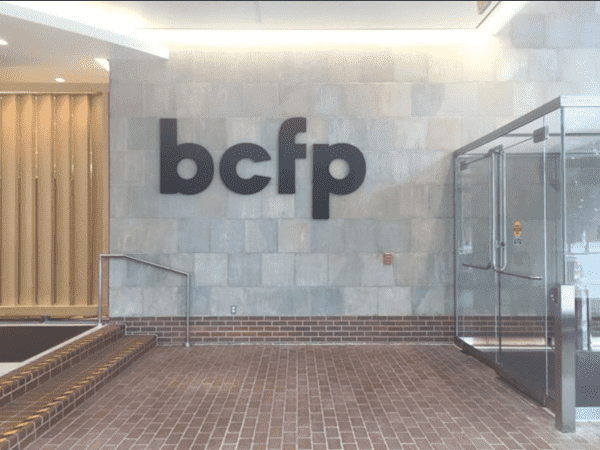
Mick Mulvaney is not above making even the pettiest of changes at the Consumer Financial Protection Bureau — he just changed the sign outside of the agency’s offices to read BCFP, as in the Bureau of Consumer Financial Protection.
Alan Zibel, a researcher at advocacy organization Public Citizen, on Monday flagged on Twitter that the bureau, created under the Dodd-Frank financial reform, had changed its sign so that it now reads BCFP — part of Mulvaney’s attempt to deemphasize the “consumer” part of the bureau’s mission.
One of the changes Mulvaney, who was named acting director of the agency in November after Richard Cordray resigned, hoped to make was to switch up the syntax of the bureau’s name to read as it officially does in Dodd-Frank. Mulvaney, a former Tea Party member of Congress, wants to emphasize the bureaucratic part of it.
“I’m trying to get in the habit of now saying the ‘BCFP.’ It’s really, really hard to do that when you’ve said the CFPB for so long,” Mulvaney said in April at an American Bankers Association conference. (That’s the same conference where he said that as a member of Congress he only spoke with lobbyists if they gave money to him.) He told a group of some 1,300 bankers and lending industry professionals that the “CFPB doesn’t exist.”
Mulvaney went as far as to ask the Associated Press to change the bureau’s entry in the AP Stylebook so that it reads Bureau of Consumer Financial Protection and, as evidenced by its office’s new signage, changed the logo.
“Welcome to … the Best Consumer Fraud Place? Or perhaps the Bureau for Corrupt Financial Predators? We’ll have to check with Mick,” Public Citizen joked on Twitter.
The change also prompted parallels with restaurant chain IHOP’s rebranding, rolled out on Monday, to IHOb — the International House of Burgers (instead of pancakes). The company says the rebranding is actually more of a temporary marketing strategy to emphasize its burger offering. There are still pancakes there, too.
“I think [Mulvaney] means to be very explicit that the Consumer Financial Protection Bureau is subordinating consumers — consumers no longer come first at the CFPB,” said Robert Weissman, president of Public Citizen, in a phone call. He quipped, “I’m sure what he’d rather do is just take out the C altogether.”
Mick Mulvaney has done a lot of questionable stuff at the CFPB
Since taking over in November, Mulvaney, a longtime opponent of the bureau who once maligned it as a “sick, sad” joke, has rolled back a number of initiatives and scaled back activities. He argues that bureau as it was conducted previously often overreached its statutory authority and that it has an equal responsibility to consumers and financial services companies.
He has reportedly scaled back an investigation into the Equifax data breach, relaxed restrictions on often predatory payday lenders, and recommended Congress pursue sweeping changes to the CFPB’s powers. Beyond the $1 billion fine the CFPB and another oversight agency slapped on Wells Fargo in April, Mulvaney hasn’t taken any other enforcement actions at the CFPB. And he wants the CFPB to make its consumer complaints portal private.
Just last week, Mulvaney disbanded all of its advisory boards and councils.
“We now have a CFPB which has political advisers who essentially are not interested in protecting American consumers,” Ruhi Maker, a senior staff attorney at the New York nonprofit law firm Empire Justice Center and a member of the Consumer Advisory Board (CAB), told me last week when discussing that decision. “They are interested in serving those people who prey on American consumers and make profits on the backs of American consumers who have the least ability to afford it.”
The acronym change isn’t the only less-than-critical agenda item Mulvaney has pursued. In December, the CFPB renamed a fellowship program for law students and recent graduates that had honored Supreme Court Justice Louis Brandeis, who was known in the early 20th century as the “people’s lawyer” for taking on major moneyed interests, including J.P. Morgan’s railroad monopoly.
Representatives for the CFPB did not return requests for comment on the change in signage. All of their email addresses, per the bureau’s website, still end in cfpb.gov.
Sourse: vox.com






